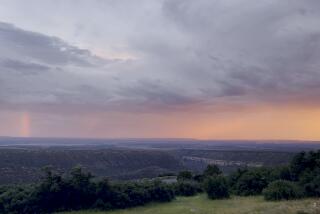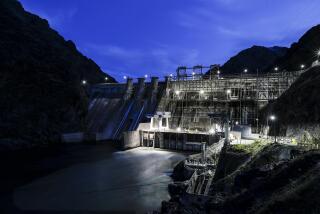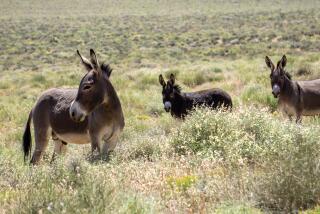In Hells, it’s loud
One of the first parties to explore the Snake River had to eat its horses to avoid starvation. Then members built a boat from the butchered beasts and paddled to join cohorts on the opposite bank. That group had fared no better, sustaining themselves on one beaver, wild cherries, the soles of old moccasins and a dog carcass.
Hells Canyon, through which the Snake runs, is the deepest gorge in North America -- from rim to river it’s 8,000 feet down, nearly 2,000 feet deeper than the Grand Canyon. We’ve come to Hells in western Idaho because it was getting cold in the mountains, and raft trips in the desert prolong summer, promising warm nights on sandy shores, and the season’s last glimpses of orange light on tepid water.
Our goals are simple: We don’t want horse on the menu or carnage from the few Class IV rapids we’ll attempt. And we want a private canyon -- silence and solitude for 32 snaking miles of this green river.
This great chasm is not known for jovial fellowship -- between states or men. Controversy surrounds the dams choking the river and the fate of salmon in it. Suicide Point, Battle Creek and Slaughter Gulch mark the sites of murders and accidental deaths from days gone by.
Yet, in Hells’ harsh desert, where black rock walls rise from the river like the sides of a witch’s caldron, we find evidence of angels. A bighorn sheep saunters by as we inflate the raft. At the first rapid we watch a bear cub scramble across the rocky shore and plunge into the water.
Osprey soar overhead and large fish catapult themselves, touching blue air before arcing back into the river.
But it isn’t quiet in Hells.
When Congress passed the Hells Canyon National Recreation Act in 1975, it included a clause that allowed motorized boats to share the river with rafts, canoes and kayaks. At dawn we awaken to the roar. They whiz by as we paddle rapids. Motors are the last sound we hear at night and the first to wake us from our cocoons under the Milky Way.
In Hells Canyon the pact with the devil has been sealed, and you have to get along with your neighbors. What we lose in silence we gain in beauty. And we don’t have to forage for old shoes for supper.
More to Read
Sign up for The Wild
We’ll help you find the best places to hike, bike and run, as well as the perfect silent spots for meditation and yoga.
You may occasionally receive promotional content from the Los Angeles Times.






